Recruiting the right people is difficult and there are no watertight solutions to ensure that candidates will deliver on the skills they displayed during interview and assessment rounds once they are in a role. Companies are now doubling down on values-based recruitment to try and hire people who want something more than just a paycheck every month; they want candidates who believe in their purpose and have a similar overlap in values. We look at how integrating them into your overall processes could improve diversity and inclusion and lead to long-term successful hires.

According to the Gallup State of the Global Workforce Report, 85% of employees worldwide are not engaged or are actively disengaged in their job. That’s a huge number and when we look at the UK in particular, only 11% of British workers are engaged. So how do organisations and hiring managers improve the disconnect to unlock long term productivity and satisfaction on both sides? The answer is values.
What is values-based recruitment?
Values-based recruitment (VBR) refers to an approach which attracts talent on the basis that their individual values and behaviours align with the values of a company or organisation. Some processes can be exclusively values-based, while others will have a mix of values and competencies known as a Competency and Values Framework (CVF). In the CVF, the values are expressed in behavioural terms. Competencies are usually behaviours (or sometimes technical attributes) which are related to effective job performance. The methodology behind these approaches is to ensure fair, objective, reliable and valid methods of assessment. Many organisations from adidas, Google to the College of Policing and NHS use a combination to enable the selection of best candidates for the job. John Lewis & Partners actually has a written Constitution, a framework to define the Partnership’s principles and the way it should operate. Each set of values on an organisation’s list might vary, but the frameworks can be made transparent and easily accessible, so there are no surprises as new hires orientate themselves to their new environment.
Putting values first
Mike Myatt, Chairman of N2Growth argues that a values-based approach to hiring increases performance, enhances collaboration, reduces turnover, improves morale and creates a stable culture. This seems like a simple recipe, yet in his experience, hiring strategies can focus on the wrong areas. He flags that only 2 out of 100 responses from hiring managers, executives and HR personnel in a survey listed “character” and “integrity” as the top attributes of candidates that would influence a hiring decision. For Myatt, the focus should be on hiring a quality individual who is a person of integrity and character, whose values are in alignment with the organisation’s core values and vision and who also happens to be talented. This is an approach echoed by Google, one of the most well-known advocates of a values-based approach.
“If we hire you based on your skills, we’ll get a skilled employee. If we hire you based on your skills, and your enduring passions, and your distinct experiences and perspectives, we’ll get a Googler. That’s what we want.”
Although it is difficult to assess character and integrity, they are vital to success especially in the current hybrid world of work where organisations need to trust and empower their employees more than ever.
When values meet diversity, inclusion and belonging
Andy Ayim, Product Leader and Business Builder describes the disconnect between employer and employee first-hand in his talk “How to Invest at the Margins.” He received feedback after an unsuccessful job interview because it was felt that he was ‘hard to reach.’ His response was, “…nobody had ever tried to reach me.”
He draws attention to the personal and professional baggage that every candidate brings to a role and that it is only by asking open questions and showing empathy that a truly meaningful exchange can happen. Connecting on a personal level or finding out about his background and his unique characteristics could have unlocked opportunities on both sides. Be open minded when you are assessing and interviewing people as people have so many transferable skills, traits and abilities that can match your core values. Don’t just look for textbook answers you have seen before. This is especially important when recruiting to ensure diversity and inclusion.
Ayim argues for recognition and power of true diversity and inclusion to create innovation for all, but it needs to start at C-level and permeate through the entire organisation to move the dial forward. Added to this, the American sociologist Devah Pager showed that companies with fair hiring practices in place were twice as likely to survive. Her research from the last recession in 2008 showed that the percentage of companies who went out of business due to biased hiring practices rose from 17% to 36.4%. Diversity of thought is proven to not only be good for innovation, but also for business success.
From culture fit to culture add
In a recent Linkedin article “21 Ideas that will change our world”, psychologists found that in the face of threats to our jobs and our lives, we become more concerned about uncertainty and purpose. We’re looking for a sense of confidence that our jobs are secure and a sense of contribution to a cause larger than ourselves and as the global workforce faces the continued uncertainty of COVID-19, it is particularly important to consider values in your hiring strategy.
According to Crowdstaffing, insisting on cultural fit deprives everyone of the economic and innovation benefits that diversity brings. Looking for values, on the other hand, offers amazing insight to the attitude, character, work ethic, integrity, dedication and accountability of candidates. It also assesses a candidate’s ability to think strategically, contributing to the organisation’s long-term success. Jim Clifton Chairman and CEO goes a step further and is of the opinion that we need to move the world’s workplace mission from paycheck to purpose. And most importantly, this requires a culture that delivers this.
How to use values-based hiring to your advantage?
When employees put effort into work and find their organisational values aligned with principles and values, this environment helps employees to connect deeply. It encourages employees to honestly analyse the culture, evaluate if they fit the values and expectations of the company and then decide whether they want to commit to that culture or not. This has the added advantage of building trust. Candidates know what is expected of them and what behaviours they need to display in order to support the culture, values and aspirations in a new organisation. For success to happen, the values of an organisation must be genuinely modelled by the company. Where values used in recruitment are not sufficiently well embedded in the organisation, this can have counterproductive outcomes for individuals and the organisation.
Netflix’s culture memo for instance garnered much attention and the organisation is very clear in following a values-based approach, “If you want to build an innovative, disruptive, high-performance, rapid growth company that attracts and retains the best talent, then you need to be deliberate about the culture you create.” The now famous culture deck showcased the “keeper test” and “sunshining,” which encourages employees to share a mistake they have made with colleagues which promotes transparency. It is safe to say that you are to blame if you apply for a role at Netflix and are surprised by what’s expected of you. Uber also came under great scrutiny for its list of Cultural Norms that held values such as “always be hustlin’” and “meritocracy and toe-stepping” that led to an internal investigation and an update by the new CEO Dara Khosrowshahi who took over in 2017. Cultures and values can evolve and change as an organisation evolves.
AirBnB values based hiring success
Airbnb built a workforce that has been committed to their mission from day one – “To live in the world where one day you can feel like you’re home anywhere & not in a home, but truly home, where you belong”.
They always hired against their core values for entry level right through to C-suite hires. Their values include:
- Champion the Mission – is working for Airbnb your calling in life?
- Be a Host – be kind, hospitable and care about hospitality.
- Simplify – keep things simple
- Every Frame Matters – insane attention to detail in everything you do.
- Be a Cereal Entrepreneur – be resourceful, creative and scrappy
- Embrace the adventure – own and learn from mistakes, be optimistic and curious
These values will not immediately apply to your company and you can’t just hit copy and paste, but what they do is highlight the importance of having a purpose as a company and the need to establish core values early on and use them when hiring. It can be the difference between success and failure and in this case it built a solid foundation for Airbnb to scale from.
Using values to combat bias
When it comes to putting VBR and CBF processes into action, the assessment should be as objective as possible, focusing on criteria that are relevant to job performance, and excluding those that are not. Trained interviewers and assessors should follow a structured process and set up that breaks down the assessment process into component parts and helps to avoid bias. Another way to attract candidates who understand values and competencies ahead of an interview is to promote values in your job listings. Layered into this, you can use behavioral questions that assess the skills, adaptability and value-based tendencies of candidates. By creating a universal format, you can weed out bias.
All interviews and assessment processes are flawed, they are a snapshot in time, and are subject to all sorts of human biases that can creep in due to too much or too little information but by using VBR and CBF we can minimise these biases and get it right more often.


